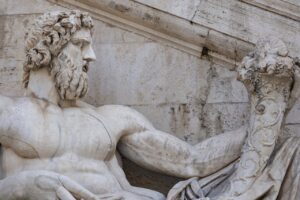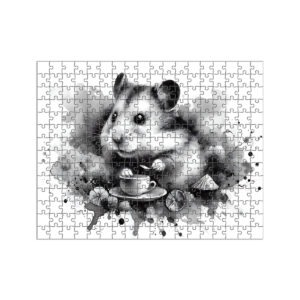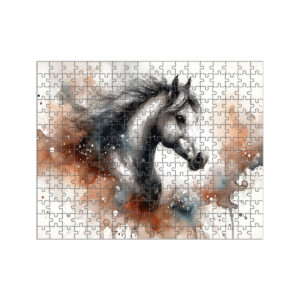
Explore & Play
Discover interesting topics and solve the accompanying crossword puzzle.
God Crossword: Understanding Prophets and Miracles
Table of Contents
Welcome to our exploration of prophets and miracles in religious history! To enhance your experience, we invite you to start with our engaging God crossword. It’s a fun way to familiarize yourself with key terms and concepts related to divine intervention and prophetic messages.
If you’re new to this topic or would like a deeper understanding before diving into the crossword, feel free to read the article first. This will provide a comprehensive overview and context for the terms you’ll encounter in the puzzle. Afterward, return to the God crossword to test your knowledge and reinforce what you’ve learned.
Enjoy your journey into the divine!
God Crossword
You can either fill in the crossword puzzle directly on this page or click the button in the bottom right corner to print it for free.

The Role of Prophets and Miracles in Religious History
Throughout religious history, prophets and miracles have played pivotal roles in shaping beliefs, inspiring faith, and demonstrating the divine nature of higher powers. These extraordinary aspects of spirituality not only define religious experiences but also affirm the divine’s involvement in the world. In this article, we will explore the profound impact of prophets and miracles, examining their divine nature, their roles in various religious contexts, and their broader theological implications. To aid in understanding, we’ve included a crossword puzzle that highlights key terms related to the divine.
The Divine Nature of Prophets and Miracles
To understand the impact of prophets and miracles, it’s essential to grasp their divine nature and the attributes associated with them. These elements offer a window into the nature of higher powers and their interactions with humanity.
A. The Concept of Divinity
Divinity, or the quality of being divine, is central to the discussion of both prophets and miracles. The divine nature of these events reflects the inherent power and majesty of a higher being. Prophets, considered messengers from the divine, convey revelations that transcend ordinary human understanding. Miracles, on the other hand, are seen as direct manifestations of divine power, illustrating the extraordinary capabilities attributed to a higher power.
In various religious traditions, divinity is synonymous with attributes like omnipotence and omniscience. These divine characteristics are crucial in understanding the miraculous events and prophetic messages that shape religious belief.
B. Omnipotence and Omniscience
The omnipotent nature of a deity is often highlighted through miraculous events. Omnipotence refers to an all-encompassing power that surpasses natural laws and human limitations. Miracles are frequently perceived as demonstrations of this boundless power. For example, in Christianity, the resurrection of Jesus is viewed as a powerful act that defies natural constraints, showcasing divine omnipotence.
Similarly, omniscience, or all-knowingness, plays a crucial role in prophetic revelations. Prophets are believed to possess insights into the divine will and future events, which reflect the omniscient nature of God. This divine knowledge guides their messages and helps believers understand the divine plan.
C. Eternal and Sacred Aspects
The eternal and sacred dimensions of divine intervention underscore the timeless and revered nature of miracles and prophecies. Eternity in religious contexts often signifies the unending nature of divine existence and influence. Miracles and prophecies are seen as manifestations of this eternal quality, bridging the gap between the divine and temporal realms.
Moreover, sacredness is a core attribute of both miracles and prophetic messages. These events are considered holy and set apart from ordinary experiences. Their sacred nature commands reverence and respect, reinforcing their significance in the spiritual lives of believers.
Prophets: Messengers of the Divine
Prophets serve as intermediaries between the divine and humanity, delivering messages that shape religious doctrines and practices. Their role is pivotal in conveying divine will and guiding spiritual communities.
A. Role and Significance of Prophets
Prophets are crucial figures in many religions, tasked with conveying divine messages and guiding believers. They are often seen as chosen individuals who communicate God’s will and offer guidance on how to live in accordance with divine principles. For instance, in Judaism, Moses is considered one of the greatest prophets, leading the Israelites and receiving the Ten Commandments from God.
Historical examples of major prophets, such as Muhammad in Islam and Siddhartha Gautama in Buddhism, highlight their influence on religious traditions. Each prophet’s messages and actions contribute to the formation of religious laws, practices, and beliefs, making their role indispensable in the spiritual history of humanity.
B. Prophetic Messages and Covenant
Many prophetic messages revolve around covenants or agreements between the divine and humanity, highlighting the role of prophets in these sacred promises. Covenants are seen as formal agreements that outline the expectations and responsibilities of both parties. For example, in the Bible, the covenant with Noah signifies God’s promise to never again flood the earth, while the covenant with Abraham establishes a special relationship between God and Abraham’s descendants.
Prophets often act as mediators in these covenants, delivering divine instructions and affirming the terms of the agreements. Their messages reinforce the sacred nature of these promises and guide followers in their commitment to divine expectations.
C. Prophets and the Trinity
In Christianity, the role of prophets intersects with the doctrine of the Trinity, highlighting the complex relationship between divine figures. The Trinity comprises the Father, the Son (Jesus Christ), and the Holy Spirit, each playing a distinct role in the divine plan. Prophets in the Christian tradition, such as John the Baptist, interact with and provide insights into this triune nature of God.
Prophets often deliver messages that relate to the roles and relationships within the Trinity. For instance, prophecies about the coming of the Messiah (Jesus Christ) and the work of the Holy Spirit demonstrate how prophetic messages integrate with Christian theological concepts.
Miracles: Signs of the Divine
Miracles are often seen as direct manifestations of divine power, illustrating the influence of the divine on the material world. They serve as signs that affirm the presence and action of higher powers in human affairs.
A. Understanding Miracles
Miracles are extraordinary events that defy natural laws, attributed to the direct intervention of a higher power. These events are perceived as signs of divine activity and serve to validate the divine nature of religious figures or doctrines. For example, in Hinduism, the miracles performed by deities like Krishna are viewed as demonstrations of their divine power.
Historical and modern examples of miracles highlight their significance across different traditions. From the parting of the Red Sea in the Bible to modern accounts of miraculous healings, these events illustrate the ongoing belief in divine intervention.
B. Miracles and Grace
Grace, or unmerited favor from the divine, is often associated with miraculous events, reflecting the benevolent nature of higher powers. Miracles are seen as acts of divine grace that bestow blessings or deliverance to individuals. For instance, in Christian theology, miraculous healings and acts of kindness are viewed as expressions of God’s grace towards humanity.
The connection between grace and miracles underscores the idea that divine favor is not earned but given freely. This concept reinforces the notion of miracles as manifestations of divine benevolence and compassion.
C. Miracles and Redemption
Miracles can also play a role in themes of redemption, offering signs of forgiveness and salvation. In many religious traditions, miracles are associated with the redemption of individuals or communities from sin or suffering. For example, the healing miracles of Jesus are often interpreted as acts of redemption that restore individuals to spiritual and physical wholeness.
These redemptive miracles highlight the role of divine intervention in addressing human shortcomings and offering paths to spiritual renewal. They serve as powerful symbols of the transformative power of divine grace.
Theological Perspectives on Prophets and Miracles
Theological perspectives offer insight into the significance of prophets and miracles within the broader context of religious belief and practice. These perspectives help to frame the roles and meanings of these phenomena within the structure of religious doctrines.
A. Doctrine and Theology
Religious doctrines and theological studies provide a framework for understanding the roles and meanings of prophets and miracles. Doctrines often outline the nature of divine intervention, the purpose of miracles, and the role of prophets in conveying divine messages. Theological studies further explore these concepts, offering deeper insights into their implications for faith and practice.
For instance, Christian doctrine discusses the role of miracles as signs of divine power and the fulfillment of prophecies, while Islamic theology examines the significance of prophets and their miracles as evidence of God’s truth.
B. The Role of Scriptures
Sacred scriptures document many of the miracles and prophetic messages that form the foundation of religious beliefs. These texts serve as authoritative sources of divine revelation, recording the miraculous events and prophetic insights that shape religious traditions. For example, the Quran contains accounts of miracles performed by prophets, while the Bible includes numerous stories of miraculous events and prophecies.
Scriptures play a crucial role in preserving and transmitting the significance of miracles and prophetic messages. They offer insights into the divine plan and provide guidance for believers in understanding and interpreting these events.
C. Faith and Worship
Faith and worship are often influenced by the presence of miracles and the messages of prophets, shaping the spiritual practices of believers. Miracles and prophecies can strengthen faith and inspire worship, leading to deeper spiritual engagement. For instance, believers may perform acts of worship or participate in rituals inspired by miraculous events or prophetic teachings.
The impact of miracles and prophecies on faith and worship underscores their importance in the religious experience. They serve as sources of inspiration and guidance, helping believers to connect with the divine and express their devotion.
Cross-Cultural and Interfaith Perspectives
Across different cultures and faith traditions, the roles of prophets and miracles reveal both unique and shared aspects of divine interaction. Examining these perspectives highlights the universal themes and diverse expressions of the divine.
A. Monotheistic vs. Polytheistic Views
The understanding of prophets and miracles varies between monotheistic and polytheistic religions, reflecting differing views on the divine. In monotheistic traditions, such as Judaism, Christianity, and Islam, prophets are seen as direct messengers from a single, all-powerful deity. Miracles are often viewed as signs of this singular divine power.
In contrast, polytheistic religions, such as Hinduism and ancient Greek religion, feature multiple deities with distinct powers and roles. Miracles may involve different gods and are often seen as expressions of their individual attributes and influence.
B. Universal Themes in Religious Miracles
Despite diverse beliefs, certain themes in miracles resonate universally, highlighting common aspects of divine intervention. Themes such as healing, provision, and protection are prevalent across various religious traditions. These universal themes reflect shared human experiences and the common belief in divine involvement in the world.
Case studies of universal miracle themes demonstrate how different cultures interpret and respond to miraculous events. For example, the theme of healing is present in many religious traditions, from the miracles of Jesus in Christianity to the healing deities in Hinduism.
Divine Insights: The Impact of Prophets and Miracles
Prophets and miracles remain central to understanding divine interaction with humanity, offering profound insights into the nature of the divine and its influence on human lives. These elements of religious history illustrate the diverse ways in which the divine engages with the world and shapes the spiritual experiences of believers. By exploring the roles of prophets and miracles, we gain a deeper appreciation for the complexities of divine intervention and its impact on faith and practice.
As we reflect on the significance of these phenomena, we recognize their enduring influence on religious beliefs and practices. The accompanying crossword puzzle highlights key terms related to the divine, providing a fun and interactive way to engage with the concepts discussed in this article.
Share to...
I hope you enjoy the content.
Want to receive our daily crossword puzzle or article? Subscribe!
You may also be interested in
Share to…
Want to receive our daily crossword puzzle?
-
Jigsaw Puzzles
Whimsical Hamster Jigsaw Puzzle in Watercolor Style 250 | 300 | 500 Brikker
kr 348,00 – kr 439,00Price range: kr 348,00 through kr 439,00 Select options This product has multiple variants. The options may be chosen on the product page -
Jigsaw Puzzles
Flåm Railway Abstract Art Jigsaw Puzzle 250 | 300 | 500 Pieces
kr 348,00 – kr 439,00Price range: kr 348,00 through kr 439,00 Select options This product has multiple variants. The options may be chosen on the product page -
Jigsaw Puzzles
Majestic Horse Watercolor Jigsaw Puzzle 250 | 300 | 500 Pieces
kr 348,00 – kr 439,00Price range: kr 348,00 through kr 439,00 Select options This product has multiple variants. The options may be chosen on the product page

















